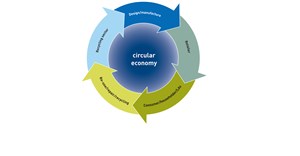Subscribe & Follow
#CannesLions
- The new standardCarl Willoughby
- All the South African winnersDanette Breitenbach
Trending
-

-
 Temu app considered malicious malware in new US lawsuit [Updated]Lindsey Schutters
Temu app considered malicious malware in new US lawsuit [Updated]Lindsey Schutters -

-

-
 #YouthMonth: Meet Tribeca Public Relations new facesKarabo Ledwaba
#YouthMonth: Meet Tribeca Public Relations new facesKarabo Ledwaba -

Jobs
- Key Account Manager Johannesburg
- Customer Relationship Management / Sales Support - Print Randburg
- Credit Controller West Rand
- Business Development Manager Johannesburg
- Operations/Production Manager Pinetown
- Print Sales Executive Johannesburg
- Xerox Operator Sandton
- Mechanical Maintenance Hammanskraal
- Debtors/Creditors/General Accounts Clerk Pretoria North
- Print Estimator Pretoria
Three Rs to manage a corporate's carbon footprint

Joe Mothilal, free standing unit (FSU) specialist for Point says these are the biggest trends to look at when it comes to sustainability. The company, a pioneer in print management solutions in South Africa, actively tries to educate clients and suppliers about going green, using these focus points.
"Being the key interaction point between clients and suppliers, we feel if we set out sustainability goals and reporting standards that all manufacturers adhere to, then the client and supplier benefit."
Sustainability table
Point has developed a Sustainability Table using the three Rs, providing tips for large corporates.
- Reuse - We encourage the client to think about the FSU, after its shelf life is over. They now brief agencies to design units to be collected after promotions and events, so they can be reused at a less prominent store.
- Recycle - By using recycled material to produce units, we save the client costs as well as ensure we are doing our bit for the environment.
- Recyclable - The ultimate goal for all materials that are being used is to be recycled after shelf life. Manufacturers are encouraged to continuously increase the percentage recyclable material they utilise.
"On this sustainability table, we highlight the different substrates that are being used to create an FSU such as metal, plastic or cardboard. The manufacturers complete the table, stating how much of the material being used on the unit is recycled, reused and recyclable. They also give us the weight of each component. From this information we can establish how much of this unit gets recycled and how much of it ends up as landfill. Naturally we are striving for a 100% recyclable unit," Mothilal comments. He adds that manufacturers and suppliers should already be using recycled cardboard that is totally recyclable and reminds companies that lead-based PVC is now banned.
These trends and efforts towards going green are currently reflected in the industry. He adds that parties are working together to create products and product stands that are sustainable. "Retailers are being more responsible and instead of throwing the units out to waste, they are giving them back to the manufacturers to be recycled."
Costs show ROI over five years
The costs of going green can be a deterrent but the company encourages clients to think of the long term gain and go beyond the basics of changing conventional light bulbs to energy savers and LEDs or using aerators for taps. "The use of solar panels and heat pumps are slowly being introduced but energy saving can be a very expensive outlay. However, return on investment in going green continues to improve and there is already a greater return on investments after five years or so."
Corporates stand to reap benefits by adopting simple measures and consulting an outsourcing solutions company. The company is currently South Africa's only independent business focused on the outsourcing of print-related business processes and the company has been saving its clients up to 35% on their respective printing costs. Its consistent drive towards educating clients, suppliers and manufacturers about sustainable solutions enhances delivery when it comes to providing the most effective services.
Balancing environment, budget
However it's not always so simple. Mothilal says there can be a fine balance between going green, when it is more expensive in the short term and reaping medium and long term benefits. "Most clients are cutting budgets and sometimes going green can increase the unit cost considerably." His solution would be for government and the major players in the economy to get involved by creating an incentive scheme for companies that support green initiatives.
It is because of the need to find more cost effective solutions to going green, as well as the current economic climate that the company assists clients in limiting paper waste and cutting back on paper consumption. It has over 200 national suppliers on its books, most of whom use FSC (Forest Stewardship Council) approved stocks, ensuring that clients receive both the best value for money and environmentally friendly print solutions. In terms of green solutions, "There is so much more that everyone can do."









